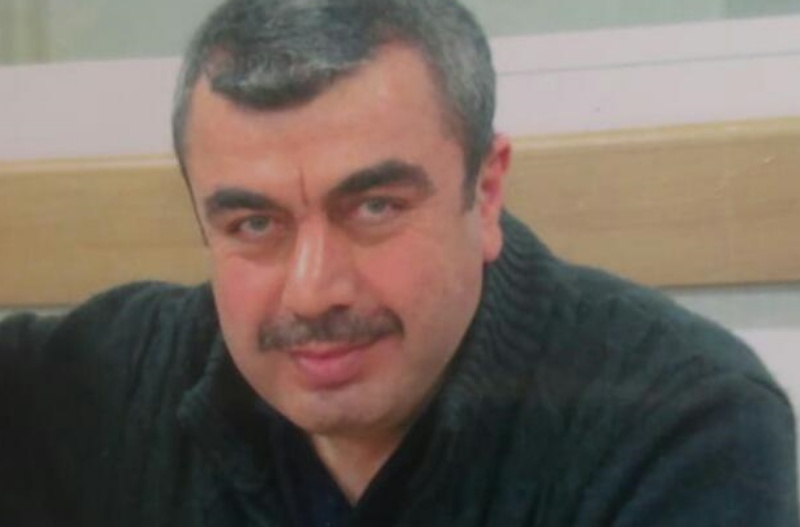
Mahmut Söylemez, who has been in prison for five years on trumped-up terrorism charges despite suffering from several chronic illnesses, has not been released although he is eligible for parole, Bold Medyareported.
Söylemez suffers from high blood pressure for which he was hospitalized several times. He also has bleeding in his intestines and contracted COVID-19 a month ago in prison. Söylemez’s wife, Refia, demanded to know why he was not released under these conditions. “Does he need to develop a terminal illness or die for him to be released?” she said.
Söylemez, a former teacher, was arrested in July 2016 for links to the Gülen movement, a faith-based group inspired by Turkish cleric Fethullah Gülen. He was working for one of the educational institutions affiliated with the movement that was later closed down. Söylemez was sentenced to seven years, six months in prison and has served the required time for his eligibility for parole.
According to the Turkish Penal Code, people convicted of membership in a terrorist organization are eligible for parole after serving two-thirds of their sentence.
Turkish President Recep Tayyip Erdoğan has been targeting followers of the Gülen movement since the corruption investigations of December 17-25, 2013, which implicated then-Prime Minister Erdoğan, his family members, and his inner circle.
Dismissing the investigations as a Gülenist coup and conspiracy against his government, Erdoğan designated the movement as a terrorist organization and began to target its members. He intensified the crackdown on the movement following the abortive putsch on July 15, 2016 that he accused Gülen of masterminding. Gülen and the movement strongly deny involvement in the coup attempt or any terrorist activity.
According to Söylemez’s family his parole was rejected on grounds that the Supreme Court of Appeals has not upheld his sentence.
“We have been waiting for the Supreme Court of Appeals since October 2020,” said Refia Söylemez. “We were told they would make a decision before he was eligible for parole, but we are still waiting. They do not even answer our petitions anymore.”
Emphasizing that the situation had taken its toll on their mental health, Refia Söylemez said they were afraid her husband’s health would deteriorate.
Sönmez underwent a biopsy two years ago and was diagnosed with multiple polyps. Since he experienced rectal bleeding, his family is worried that the polyps may develop into something malignant.
In a statement last year Amnesty International called for Turkish authorities to release prisoners who are eligible for parole, especially during the COVID-19 pandemic.
However, political prisoners, even those with critical illnesses, have not been released so they can at least seek proper treatment. Human rights activists and opposition politicians have frequently criticized authorities for not releasing critically ill prisoners.
Human rights defender and former Peoples’ Democratic Party (HDP) deputy Ömer Faruk Gergerlioğlu said ill prisoners were not released until they were at the point of no return. He claimed that prisoners did not have access to proper healthcare facilities such as hospitals or infirmaries.
According to the most recent statistics published by the Human Rights Association (İHD), the number of sick prisoners is in the thousands, more than 600 of whom are critically ill. Although most of the seriously ill patients have forensic and medical reports deeming them unfit to remain in prison, they are not released. Authorities refuse to free them on the grounds that they pose a potential danger to society.
A number of critically ill prisoners passed away in 2020 because they were not released in time to receive proper medical treatment.
Source: Stockholm Center for Freedom (SCF)



